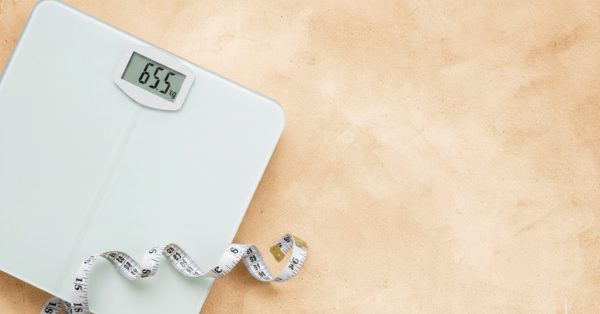Is the Carnivore Diet Safe?
Published on
This article was written by Maeve Hanan (Food Freedom Specialist and Lead Dietitian at Dietetically Speaking).
I was shocked when I learned that the Carnivore Diet has been one of the most Googled diets of 2025 so far.
When I first came across this diet back in 2018, I didn’t think it would gain much traction — it just seemed too extreme and, frankly, too ridiculous to take seriously. But here we are, seven years later, and it’s more popular than ever.
So let’s break down what the Carnivore Diet actually involves — and whether this is a good idea or not.
What is the Carnivore Diet?
The Carnivore Diet is exactly what it sounds like: an animal-only diet. The most extreme versions involve eating nothing but beef, salt, and water. Whereas other versions allow other animal-based foods like meat, fish, eggs, and animal fats.
But this diet excludes all plant-based foods. That means no fruit, no vegetables, no grains, no legumes, no nuts and no seeds.
In short, it’s the latest version of the low-carb diet trend — think keto, but taken to an even more extreme level.
This was popularised by orthopaedic surgeon Shawn Baker when he promoted it on the Joe Rogan podcast in 2017. That same year he had his medical license temporarily revoked. It was reinstated in 2019 under the condition that he be supervised when practicing medicine (1).
Mikhaila Peterson and her father Jordan Peterson also heavily promoted the Carnivore diet from around 2018 onwards, claiming it helped manage her autoimmune issues, mental health struggles, and fatigue. Since then, its popularity has continued to grow, driven largely by promotion on social media.
Claims About The Carnivore Diet
Avid fans of this diet claim it has helped them to improve:
- Weight loss
- Mental health
- Gut health
- Energy levels
- Inflammation levels
- Autoimmune conditions
However, these are largely anecdotal claims made by non-nutrition professionals and are not supported by robust nutritional science.
In fact, there are no long-term or controlled studies that have investigated the Carnivore Diet so far.
The very limited research that is out there related to the Carnivore Diet includes a study of a social media survey that reported some positive findings (2). However, this has to be interpreted with a lot of caution as all the information was self-reported and unverified (3).
Another case report of 10 people found that a Carnivore-keto diet led to improvements in those with inflammatory bowel disease (4). But this isn’t a controlled study, and the numbers are very small so more research is needed to investigate this.
Risks Related to the Carnivore Diet
While some people report feeling better on this diet in the short term, there are some very real health concerns that come with this extreme way of eating. Let’s take a look at the main risks linked to the Carnivore Diet.
The Carnivore Diet Contains Zero Fibre
Fibre is essential for gut health, feeding our beneficial gut bacteria, supporting digestion, and reducing the risk of chronic diseases like bowel cancer and heart disease (5). Our bodies thrive on a diverse, plant-rich diet.
The Carnivore Diet includes no fibre whatsoever, which is incredibly concerning for long-term gut health, as well as overall health.
Eating Massive Amounts of Red Meat is Risky
Red meat can certainly be a nutritious part of a varied and balanced diet.
But consuming it in large quantities has been linked to a higher risk of a number of health conditions, such as (6 – 8):
- Heart disease
- Cancer
- Diabetes
- Kidney stones
High amounts of saturated fat and compounds formed during cooking large amounts of red meat can all contribute to these health risks; this is especially true of processed red meat such as bacon, ham, salami, pepperoni etc.
It’s Deficient in Key Nutrients
Animal products provide some important nutrients, but they fall short in many areas.
For example, a case study which compared the Carnivore Diet to that of “average Australian adults” found this diet to be significantly lacking in fibre as well as being low in (9):
- Thiamine
- Magnesium
- Calcium
- Vitamin C
- Iron
- Folate
- Iodine
- Potassium
These nutrients play crucial roles in immune function, heart health, bone health and protection against oxidative stress and inflammation.
This Diet Could Seriously Impact Your Quality of Life
The Carnivore Diet encourages rigid, all-or-nothing thinking around food.
This level of extreme restriction can easily lead to food preoccupation, heightened anxiety, and the development of binge-restrict cycles — all of which take a toll on both physical and mental health.
Beyond the nutritional concerns, the diet’s inflexibility often makes social situations challenging, creating feelings of isolation and disconnection. Constantly navigating food rules can also become mentally exhausting, further straining your emotional well-being and damaging your overall relationship with food.
Importantly, there are currently no robust, high-quality long-term studies to confirm the safety or effectiveness of the Carnivore Diet. This means there may be additional risks or side effects that are not yet fully understood.
The Bottom Line
While a lot of the claims out there about the Carnivore Diet can be enticing, it raises multiple red flags from both a nutritional and psychological standpoint.
There is a chance this diet may show some potential in very specific medical situations, in a similar way that the keto diet can be used in certain clinical contexts — but the current evidence is extremely limited and largely anecdotal. There simply aren’t enough high-quality, long-term studies to confirm its safety, effectiveness, or broader applicability.
For the vast majority of people, the extreme restriction, lack of dietary fibre, nutrient deficiencies, and potential long-term health risks make this diet a poor choice.
In addition to the physical risks, the rigid, all-or-nothing approach can negatively impact mental wellbeing, social life, and one’s overall relationship with food — often leading to increased food anxiety, disordered eating patterns, and reduced quality of life.
Whereas we already know that a varied, balanced and flexible way of eating supports not only physical health, but also mental wellbeing and a positive, peaceful relationship with food.
References:
- New Mexico Medical Board (2019) “In the Matter of the Application of Shawn Mark Baker M.D.,” [accessed June 2025 via: http://docfinder.docboard.org/nm_orders/Baker,%20Shawn%20Mark.pdf]
- Lennerz, B. S., Mey, J. T., Henn, O. H., & Ludwig, D. S. (2021). Behavioral characteristics and self-reported health status among 2029 adults consuming a “carnivore diet”. Current developments in nutrition, 5(12), nzab133. [accessed June 2025 via: https://pubmed.ncbi.nlm.nih.gov/34934897/]
- Kirwan, R., Mallett, G. S., Ellis, L., & Flanagan, A. (2022). Limitations of self-reported health status and metabolic markers among adults consuming a “Carnivore diet”. Current Developments in Nutrition, 6(5), nzac037. [accessed June 2025 via: https://pmc.ncbi.nlm.nih.gov/articles/PMC9154285/]
- Norwitz, N. G., & Soto-Mota, A. (2024). Case report: Carnivore–ketogenic diet for the treatment of inflammatory bowel disease: a case series of 10 patients. Frontiers in Nutrition, 11, 1467475. [accessed June 2025 via: https://pubmed.ncbi.nlm.nih.gov/39296504/]
- Barber, T. M., Kabisch, S., Pfeiffer, A. F., & Weickert, M. O. (2020). The health benefits of dietary fibre. Nutrients, 12(10), 3209. [accessed June 2025 via: https://pubmed.ncbi.nlm.nih.gov/33096647/]
- Farvid, M. S., Sidahmed, E., Spence, N. D., Mante Angua, K., Rosner, B. A., & Barnett, J. B. (2021). Consumption of red meat and processed meat and cancer incidence: a systematic review and meta-analysis of prospective studies. European journal of epidemiology, 36, 937-951. [accessed June 2025 via: https://pubmed.ncbi.nlm.nih.gov/34455534/]
- Shi, W., Huang, X., Schooling, C. M., & Zhao, J. V. (2023). Red meat consumption, cardiovascular diseases, and diabetes: a systematic review and meta-analysis. European heart journal, 44(28), 2626-2635. [accessed June 2025 via: https://pubmed.ncbi.nlm.nih.gov/37264855/]
- Asoudeh, F., Talebi, S., Jayedi, A., Marx, W., Najafi, M. T., & Mohammadi, H. (2022). Associations of total protein or animal protein intake and animal protein sources with risk of kidney stones: a systematic review and dose–response meta-analysis. Advances in Nutrition, 13(3), 821-832. [accessed June 2025 via: https://pubmed.ncbi.nlm.nih.gov/35179185]
- Goedeke, S., Murphy, T., Rush, A., & Zinn, C. (2024). Assessing the Nutrient Composition of a Carnivore Diet: A Case Study Model. Nutrients, 17(1), 140. [accessed June 2025 via: https://pmc.ncbi.nlm.nih.gov/articles/PMC11722875/]











